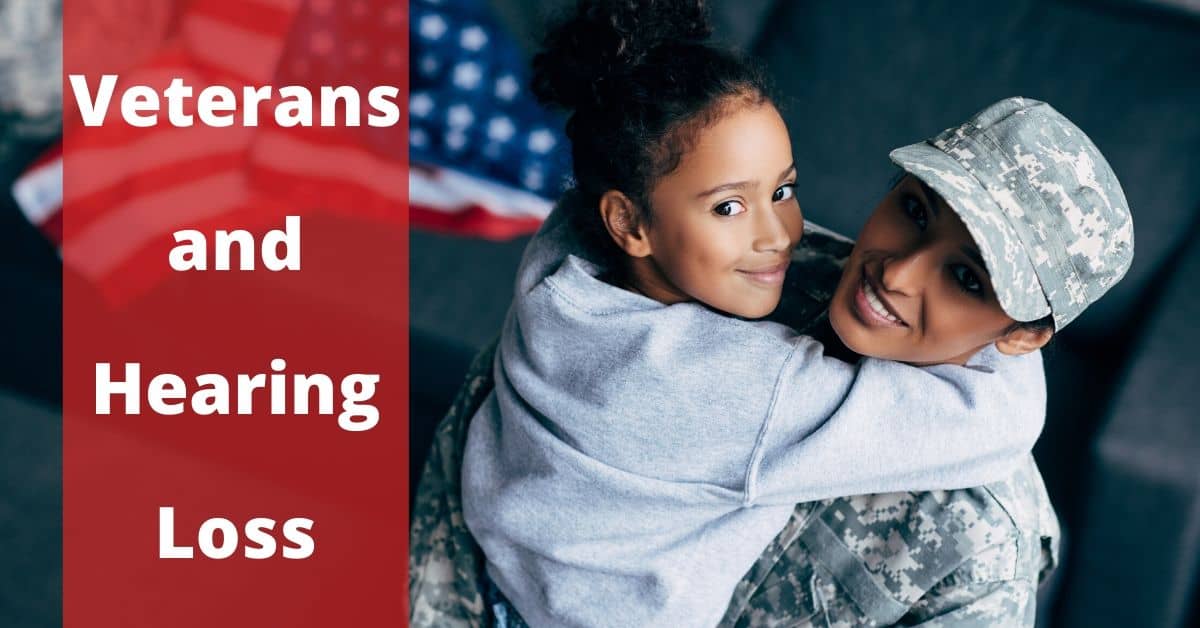Although hearing loss can affect anyone, particularly seniors, some recently gathered statistics demonstrate that veterans have higher rates of hearing loss than others. These facts about veteran hearing loss may come as no surprise considering those veterans who have served in loud training simulations and actual armed combat. Indeed, hearing loss and its cousin tinnitus are the top two health concerns causing veterans to seek health care at the U.S. Department of Veterans Affairs (VA) hospitals.
With over 1.75 million compensation cases for tinnitus—the technical term for persistent sound such as ringing, buzzing, or whirring—and 1.16 million compensation cases for hearing loss in 2017, the VA is considering what can be done to remedy the hearing loss of veterans as well as how to prevent hearing loss among service members before it’s too late. In order to better protect the hearing of its members, the armed forces have put into place strict rules about the use of hearing protection units.
Types of Hearing Protection
Although disposable foam earplugs are the most common type of hearing protection, there are other types available in the military, particularly for those who are exposed to loud blasts. Small foam earplugs have the benefit of being easy to carry, clean when they are new and contained in plastic bags, and they enable the wearer to carry on conversations at the same time.
One of the risks that comes with the use of foam earplugs is that they can be inserted only partially, exposing the ear canal to damaging noise even when they are somewhat in place. In order to best use earplugs, be sure to compress the units into a pea-sized shape and to insert into the entrance to the ear canal. Once in place, this type of earplug will expand to fill that space, filling the gaps between skin and foam to ensure that harmful sounds do not enter the ear.
In addition to the standard model of earplugs, more advanced protection is available to service members when they need it. Noise-cancelling ear muffs are worn over the ear, forming a protective area around the ear. These units are better suited to loud combat and training locations where blasts occur. However, they tend to make verbal communication impossible, so many service members on active duty cannot use them without sacrificing communication ability.
In order to solve this problem, some helmets and headsets have been equipped with not only hearing protection, but also headphones and microphones built into their headgear. With the ability to converse with team members while blocking out harmful outside sound, these devices make it possible for pilots and ground troops to remain protected and to deploy strategies effectively.
Finally, noise suppressors on weapons are an effective way to protect the sensitive ears of those using them. With the sound of machine gun blasts occurring so close to the ears, they can lead to serious hearing loss and even a rupture in the eardrum in some extreme cases. Wearing some form of hearing protection is essential for the future hearing health of those who use these weapons, but noise suppressors are another way to combat the loud sounds they emit, also making them less of a risk to others.
Although the armed forces have taken strides toward protecting the hearing of our future veterans, more can be done. A defense contractor, 3-M Corporation out of Minneapolis, was recently fined $9.1 million to settle claims that they knowingly supplied faulty hearing protection to the military. These double-ended earplugs were too short to effectively protect hearing and also could come imperceptibly dislodged from the ear.
Remedying this type of error will be essential to protect the hearing of future veterans, and the Army is fast at work trying to incorporate hearing protection that makes it possible to connect with other soldiers. This Tactical Communications and Protective System (TCAPS) would solve the problem of too much noise cancellation provided by earmuffs while reducing the harm from very loud blasts and high-frequency pitches that are endured on active duty. These and other innovations will be essential to the next generation of young military members who need optimum communication ability while preserving their hearing as veterans of service.

